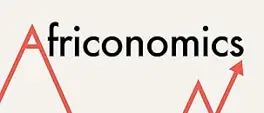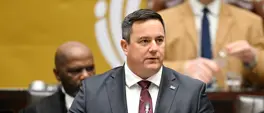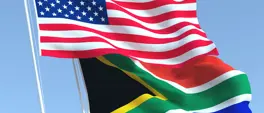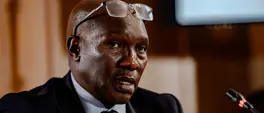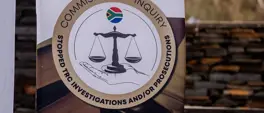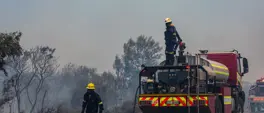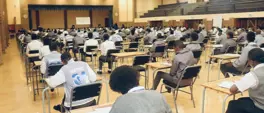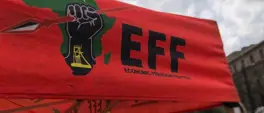MALAIKA MAHLATSI: The government of national unity - a poisoned chalice? | Part 2
Malaika Mahlatsi
20 June 2024 | 17:04The GNU will likely weaken the ANC further by not only heightening tensions within the organisation, but also making it further haemorrhage electoral support as its voters are invested in some of the things that it’s more likely than not to compromise on.
Part 1 of this article, titled “Africa’s history of governments of national unity”, was published on the 11th of June.
The said article reflects on the basis and nature of recent governments of national unity (GNUs) on the African continent, with specific reference to Kenya, Zimbabwe, Rwanda and Libya.
South Africa’s GNU at the dawn of democracy is centred in this reflection, with a barometer of its formation and the prevailing material conditions that necessitated it comprehensively explored.
GNUs in other parts of the world are also briefly analysed, specifically the most recent ones that were established in response to global health and ecological emergencies.
In this second part of the article, I reflect on some of the challenges and dangers that confront South Africa’s recently established GNU led by the African National Congress (ANC).
As of the publication of this article, five other parties have officially joined the GNU. These include the Democratic Alliance (DA), the Inkatha Freedom Party (IFP), GOOD Party, the Patriotic Alliance (PA) and the Pan Africanist Congress of Azania (PAC).
Build One South Africa (BOSA) and Rise Mzansi have indicated that they’re not ruling out joining the GNU, subject to some clarifications and agreements.
After the ANC stated that parties could still join the GNU even after its formation, in the spirit of inclusivity, more parties will likely embrace it.
On the other side of the GNU is the newly established Progressive Caucus, a political alliance comprising several parties including the Economic Freedom Fighters (EFF), uMkhonto weSizwe Party (MK) Party, Al Jama-ah, United Democratic Movement (UDM), African Transformation Movement (ATM) and the United Africans Transformation (UAT).
The Progressive Caucus, which aims to strengthen opposition against the GNU, collectively holds almost 30% of the seats in the National Assembly. Although this is a smaller percentage compared to those held by parties that are part of the GNU, it is by no means insignificant.
While the Progressive Caucus may not have the quantitative capacity necessary to stop the GNU in its tracks, it can still position itself not only as a highly effective opposition but can also sharpen contradictions that already exist, particularly within the ANC.
A significant number of members of the National Executive Committee (NEC) of the ANC have expressed misgivings about the ANC working with the DA. This is a sentiment that is also held by many ANC members and supporters, who see this as a compromise of fundamental values and principles of the broader Mass Democratic Movement.
This is made worse by the stance that the DA has taken concerning the EFF and MK Party, parties with a strong pro-Black character. The DA has publicly made it known that it’s unwilling to work with both these parties, deepening the perception that it wants to work with moderate parties that don’t antagonise its white-centric aspirations.
And herein lies the first challenge of the GNU.
The ANC, in attempting to allay fears about the substance of the GNU, published a framework outlining the foundational principles, minimum programme and modalities of the GNU.
The minimum programme includes an attempt at clarification on some of the more contentious issues between the ANC and DA in particular, such as property rights and foreign policy. The two parties have radically different positions on these and many other issues. And while the framework attempts to reconcile these, it is very silent on the details that matter.
For example, whereas the ANC advocates for universal healthcare, the framework speaks of the need to “invest in healthcare”. This subtle omission of the universal provision of this healthcare is telling – especially in light of the DA stating unequivocally that it would challenge the signing into law of the National Health Insurance (NHI) that the ANC supports.
And while the 54th National Conference resolutions of the ANC advocate for the expropriation of land, which the DA is vehemently opposed to, the framework speaks of the need to “tackle spatial inequalities”.
Tackling spatial inequalities is not the same as land expropriation even as landlessness is the key factor informing spatial injustice. However, reforming land access can be done without radically transforming land ownership patterns.
The ANC has also strongly advocated for free higher education, a position not supported by the DA. The framework, in reconciling these differences, speaks merely of the need for the provision of “quality education”.
On foreign policy, the framework speaks of a foreign policy that is based on human rights, the national interest, solidarity and multilateralism. The ideological underpinning of this isn’t stated.
This matters because the ANC and DA don’t share the same understanding of what any of these points mean.
For example, the ANC’s idea of solidarity involves providing material support to countries like Cuba – something that the anti-Socialist DA is so vehemently opposed to that it took the ANC-led government to court on the issue – and won the case. The understanding of the Israeli war in Palestine is also a serious area of contention, with the ANC in support of Palestine and the DA in support of Zionist Israel.
Reconciling these two positions is not possible without adopting a stance of neutrality – an unconscionable position in light of the genocidal acts being committed by the Israeli state, and a position that would define the ANC outside of its historical commitment to the Palestinian cause.
Another key aspect of the modalities of the GNU involves consultation on key decisions including the president’s appointment of a cabinet. The framework also states that decisions will be made by consensus.
This means that parties that form part of the GNU will need to have general agreement or concord on issues ranging from the national budget (which the DA and ANC have historically disagreed on) and the appointment of Ministers.
The cracks have begun to show on this aspect, with DA Federal Council chairperson Helen Zille accusing the ANC of not consulting with the party on the decision to include the PA in the GNU.
This is in contrast to the GNU framework published by the ANC, which states that all parties are welcome at the table. But it’s reflective of the bullying tactics that are characteristic of the DA, as historically raised by parties it has been in coalitions with at the local government level, including the PA and ActionSA.
With these radical differences outlined, it’s clear that the only way for the ANC and DA to work together is by huge compromises being made.
For the ANC, particularly, these compromises undermine not only its conference resolutions, which have been the source of the tensions within the party leading to intense factionalism that has weakened it but also its historical mission.
The GNU will likely weaken the ANC further by not only heightening tensions within the organisation, but also making it further haemorrhage electoral support as its voters are invested in some of the things that it’s more likely than not to compromise on.
This could lay parameters for conflict not only internally within the ANC, but in a South Africa that is desperately in need of radical economic transformation.
Malaika is a geographer and researcher at the Institute for Pan African Thought and Conversation. She is a PhD in Geography candidate at the University of Bayreuth in Germany.
Get the whole picture 💡
Take a look at the topic timeline for all related articles.

